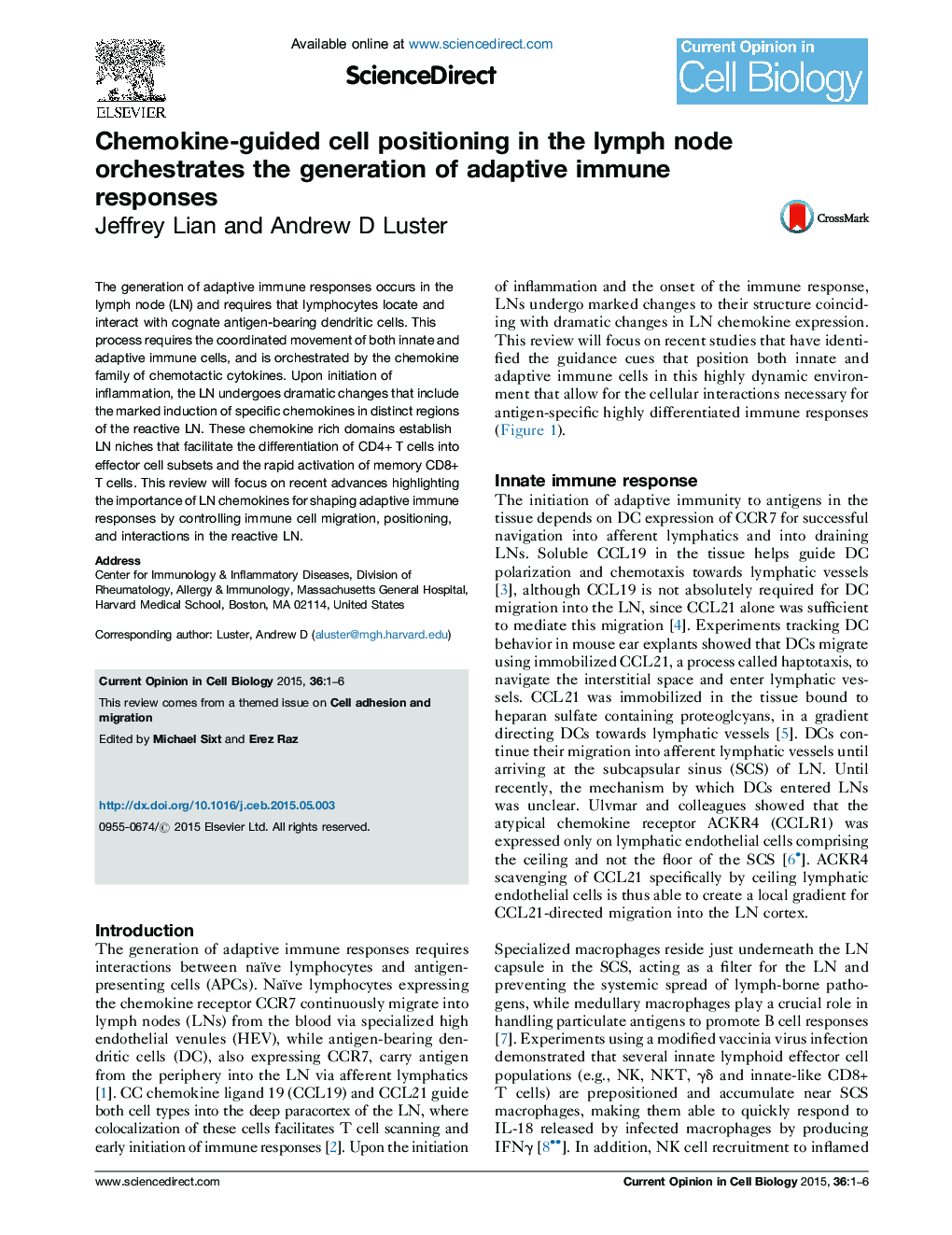| Article ID | Journal | Published Year | Pages | File Type |
|---|---|---|---|---|
| 8465440 | Current Opinion in Cell Biology | 2015 | 6 Pages |
Abstract
The generation of adaptive immune responses occurs in the lymph node (LN) and requires that lymphocytes locate and interact with cognate antigen-bearing dendritic cells. This process requires the coordinated movement of both innate and adaptive immune cells, and is orchestrated by the chemokine family of chemotactic cytokines. Upon initiation of inflammation, the LN undergoes dramatic changes that include the marked induction of specific chemokines in distinct regions of the reactive LN. These chemokine rich domains establish LN niches that facilitate the differentiation of CD4+ T cells into effector cell subsets and the rapid activation of memory CD8+ T cells. This review will focus on recent advances highlighting the importance of LN chemokines for shaping adaptive immune responses by controlling immune cell migration, positioning, and interactions in the reactive LN.
Related Topics
Life Sciences
Biochemistry, Genetics and Molecular Biology
Cell Biology
Authors
Jeffrey Lian, Andrew D Luster,
